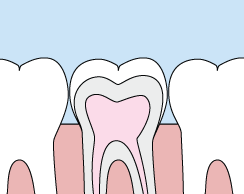Sealants
Dental Sealants

Even the best drivers still sometimes skid off the road due to circumstances beyond their control. That’s why most of us get auto insurance. Similarly, even those with the best dental habits still sometimes get tooth decay. That is why many people get dental sealants.
There are parts of the mouth that are difficult to reach with a toothbrush. We are simply often unaware that the small cracks and grooves in our teeth haven’t been cleaned, even after a thorough brushing. When those areas are left untouched by the brush again and again, decay begins to develop.
Dental sealants provide extra protection against decay. They are made up of a resin that bonds to and hardens on the tooth, smoothing out the tooth’s small crevasses. Once the tooth is sealed, it is easier to give it a truly thorough brushing—making it less likely that decay will develop.
Sealants are typically applied as a preventative measure against tooth decay. As such, sealants are most often applied to permanent teeth instead of to “baby” teeth. Most frequently, sealants are applied early on to protect young people from developing decay on their permanent teeth. Every patient, however, has unique needs. Some adults will have sealants applied later in life to healthy teeth.
The life expectancy of a sealant is about three-to-five years, though it is fairly common for sealants to last much longer. Sealants only offer protection when fully intact, so if a sealant chips or comes off, it is important to schedule an appointment with Dr. Hadeed right away. He will examine your mouth and re-seal any tooth that requires attention.